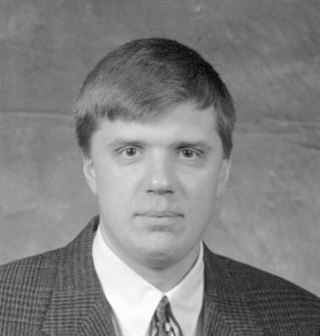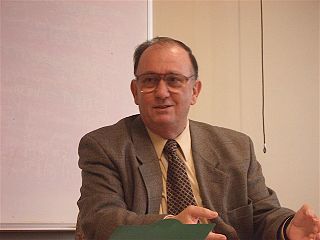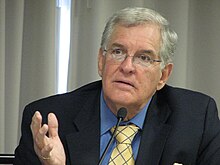The Essenes were a mystic Jewish sect during the Second Temple period that flourished from the 2nd century BCE to the 1st century CE.

The Book of Jubilees, sometimes called Lesser Genesis (Leptogenesis), is an ancient Jewish apocryphal text of 50 chapters, considered canonical by the Ethiopian Orthodox Tewahedo Church as well as Ethiopian Jews, where it is known as the Book of Division. Jubilees is considered one of the pseudepigrapha by the Catholic, Eastern Orthodox, and Protestant Churches. It is also not considered canonical within Judaism outside of Beta Israel.

The Book of Enoch is an ancient Hebrew apocalyptic religious text, ascribed by tradition to the patriarch Enoch who was the father of Methuselah and the great-grandfather of Noah. The Book of Enoch contains unique material on the origins of demons and Nephilim, why some angels fell from heaven, an explanation of why the Genesis flood was morally necessary, and a prophetic exposition of the thousand-year reign of the Messiah. Three books are traditionally attributed to Enoch, including the distinct works 2 Enoch and 3 Enoch. None of the three books are considered to be canonical scripture by the majority of Jewish or Christian church bodies.

Pseudepigrapha are falsely attributed works, texts whose claimed author is not the true author, or a work whose real author attributed it to a figure of the past. The name of the author to whom the work is falsely attributed is often prefixed with the particle "pseudo-", such as for example "pseudo-Aristotle" or "pseudo-Dionysius": these terms refer to the anonymous authors of works falsely attributed to Aristotle and Dionysius the Areopagite, respectively.

Lawrence Harvey Schiffman is a professor at New York University ; he was formerly Vice-Provost of Undergraduate Education at Yeshiva University and Professor of Jewish Studies. He had previously been Chair of New York University's Skirball Department of Hebrew and Judaic Studies and served as the Ethel and Irvin A. Edelman Professor in Hebrew and Judaic Studies at New York University (NYU). He is currently the Judge Abraham Lieberman Professor of Hebrew and Judaic Studies at New York University and Director of the Global Institute for Advanced Research in Jewish Studies. He is a specialist in the Dead Sea Scrolls, Judaism in Late Antiquity, the history of Jewish law, and Talmudic literature.
Psalms 152 to 155 are additional Psalms found in two Syriac biblical manuscripts to date and several manuscripts of Elijah of Anbar's "Book of Discipline", first identified by the orientalist librarian Giuseppe Simone Assemani in 1759. Together with Psalm 151 they are also called the Five Apocryphal Psalms of David or the "Five Syriac Psalms".

Frank Moore Cross Jr. (1921–2012) was the Hancock Professor of Hebrew and Other Oriental Languages Emeritus at Harvard University, notable for his work in the interpretation of the Dead Sea Scrolls, his 1973 magnum opusCanaanite Myth and Hebrew Epic, and his work in Northwest Semitic epigraphy. Many of his essays on the latter topic have since been collected in Leaves from an Epigrapher's Notebook.
James R. Davila is an American biblical scholar. He is Professor of Early Jewish Studies and former Principal of St Mary's College, St Andrews. A specialist in Second Temple Judaism and Old Testament Pseudepigrapha, Davila is a Participant at the Enoch seminar and a member of the Advisory Board of the journal Henoch.
Proto-Gnosticism or pre-Gnosticism refers to movements similar to Gnosticism in the first few centuries of Christianity. Proto-Gnostics did not have the same full fledged theology of the later Gnostics but prefigured some of their views. There is however some debate regarding the existence of proto-Gnosticism in the first century.
The Enoch Seminar is an academic group of international specialists in Second Temple Judaism and the origins of Christianity who share information about their work in the field and biennially meet to discuss topics of common interest. The group is supported by the Department of Near Eastern Studies of the University of Michigan and the Michigan Center for Early Christian Studies, the group gathers about 200 university professors from more than fifteen countries.
Jonas Carl Greenfield was an American scholar of Semitic languages, who published in the fields of Semitic Epigraphy, Aramaic Studies and Qumran Studies, and a distinguished member of the Israel Academy of Sciences and Humanities.
Loren T. Stuckenbruck is a historian of early Christianity and Second Temple Judaism, currently professor of New Testament at the University of Munich, in Germany. His work has exerted a significant impact on the field.

Andrei A. Orlov is an American professor of Judaism and Christianity in Antiquity at Marquette University. He "is a specialist in Jewish Apocalypticism and Mysticism, Second Temple Judaism, and Old Testament Pseudepigrapha. Within the field of Second Temple Jewish apocalyptic literature, Orlov is considered among the leading experts in the field of Slavonic texts related to Jewish mysticism and Enochic traditions." He "has established himself as a significant voice in the study of Second Temple Jewish traditions, especially those associated with 2 Enoch and other Slavonic Pseudepigrapha." Orlov is a veteran of the Enoch seminar and a member of the Advisory Board of the journal Henoch.
4QInstruction,, also known as Sapiential Work A or Secret of the Way Things Are, is a Hebrew text among the Dead Sea Scrolls classified as wisdom literature. It is authored by a spiritual expert, directed towards a beginner. The author addresses how to deal with business and money issues in a godly manner, public affairs, leadership, marriage, children, and family, and how to live life righteously among secular society. There is some consensus that it dates to the third century BCE.

Michael Edward Stone is a professor emeritus of Armenian Studies and of Comparative Religion at the Hebrew University of Jerusalem. His research deals with Armenian studies and with Jewish literature and thought of the Second Temple period. He is also a published poet.
Hugh Godfrey Maturin Williamson is a theologian and academic. He was Regius Professor of Hebrew at the University of Oxford from 1992 to 2014, a position he now holds as Emeritus.
Carol Ann Newsom is an American biblical scholar, historian of ancient Judaism, and literary critic. She is the Charles Howard Candler Professor Emerita of Old Testament at the Candler School of Theology and a former senior fellow at the Center for the Study of Law and Religion at Emory University. She is a leading expert on the Dead Sea Scrolls, Wisdom literature, and the Book of Daniel.

Meredith J. C. Warren is a Senior Lecturer in Biblical and Religious Studies at the University of Sheffield. She is known for her views on the New Testament and early Judaism as well as for her media appearances for such outlets as The Washington Post, and BBC radio. She is a Metis citizen of the Manitoba Metis Federation.
Matthias Henze is the Isla Carroll and Perry E. Turner Professor of Hebrew Bible and Early Judaism at Rice University in Houston, Texas.

The manuscript 4Q127 is one of the Dead Sea Scrolls. It is probably a paraphrase of Exodus according to the Septuagint (LXX) of the biblical Book of Leviticus, found at Qumran. The Rahlfs-No. is 802. Palaeographically it dates from the first century BC. Currently the manuscript is housed in the Rockefeller Museum in Jerusalem.









